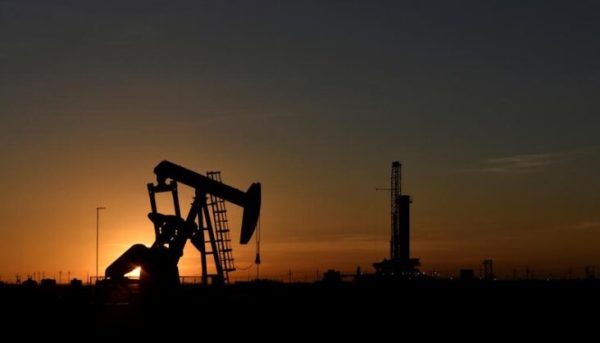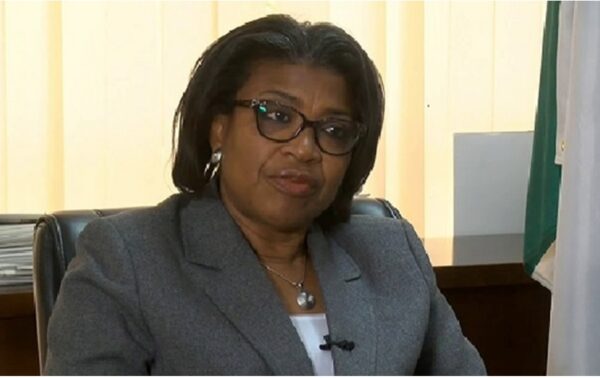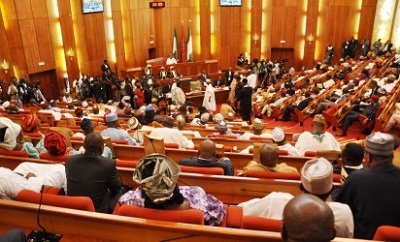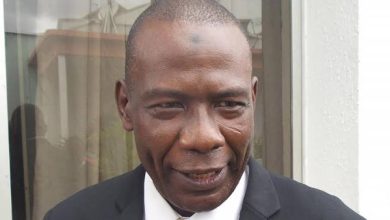Nigeria’s weak economy and risks of COVID – induced recession
 From a six per cent Gross Domestic Product (GDP) six years ago, to recession in 2016, with post-recession’s fragile recovery below two per cent till date, and now predictions of imminent recession in 2020, it’s been no respite for both the citizenry and economy.
From a six per cent Gross Domestic Product (GDP) six years ago, to recession in 2016, with post-recession’s fragile recovery below two per cent till date, and now predictions of imminent recession in 2020, it’s been no respite for both the citizenry and economy.
Indeed, the nation’s economy had been grappling with weak recovery from the 2014 oil price shock to the 2016 economic recession with GDP growth tapering around 2.3 percent in 2019.
In February, the IMF revised the 2020 GDP growth rate from 2.5 percent to 2 percent, as a result of relatively low oil prices and limited fiscal space.
Nigeria has over the years recorded cases of fiscal mismanagement. The country has also lost advantages of the ‘boom cycle’ by virtue of its sole commodity offering (crude oil) in the international market. It is currently facing the “burst” curve of the commodity and indeed, the development is no palatable for the country.
It is a public knowledge that the economy relies heavily on the proceeds from crude oil to maintain between 65 per cent and 70 per cent of its total revenue. It generates about 90 per cent of the country’s foreign exchange earnings.
Trading at over $100 a barrel for years, the country had every opportunity to save in expectations of the cyclical “burst”. It did not. Alternatively, it could have invested heavily in infrastructure, such that at this point, domestic activities would be raved up through diversification.
Regrettably, investments in infrastructure were merely heard, but not on ground and this, was the foundation of the 2016 recession.
Relatedly, the country’s debt profile has been a source of concern for policymakers and development practitioners as the most recent estimate puts the debt service-to-revenue ratio at 60 percent, which is likely to worsen amid the steep decline in revenue associated with falling oil prices.
These constraining factors are exacerbated by the COVID-19 crisis which is currently ravagining the nation’s economy, sliding it into another recession.
Recession is a period of significant decline in activities across the economy- low industrial production and manufacturing, high inflation, rising unemployment, falling purchasing power, low fiscal spending, as well as poor consumer spending, among others.
The federal government has imposed a lockdown in Lagos and Ogun states as well as Abuja (which have the highest number of coronavirus cases combined).
Other states have quickly followed suit by imposing lockdowns in their states. Nigeria has a burgeoning economy as well as a large informal sector, which contributes 65 percent of its economic output.
Movement restrictions have not only reduced the consumption of nonessential commodities in general, but have affected the income-generating capacity of these groups, thus reducing their consumption expenditure.
Investments by firms will be impeded largely due to the uncertainties that come with the pandemic-
The emergence of COVID-19 and its increasing incidence in Nigeria called for drastic review and changes in the earlier revenue expectations and fiscal projections.
Already, the International Monetary Fund has stated that Nigeria’s GDP will contract by 3.4 per cent this year.
With the Coronavirus (COVID-19) pandemic wrecking so much havoc within the first four months of the year already, the IMF says the global economy is poised for the worst recession in almost a century.
In its World Economic Outlook released on last week Tuesday, the IMF says sub-Saharan Africa is not spared, as it goes into recession with gross domestic product contracting by 1.6 per cent this year, as against last year’s 3.1per centgrowth, propelled by its largest economies- Nigeria and South Africa.
“While outlook forecasts a sharp 3.4 per cent decline in Nigeria’s gross domestic product this year, compared to a 2.2 per cent growth in 2019, it comes behind the 5.8 per cent fall in South Africa’s economy, from a growth of 0.2% in 2019.”
Analysts have argued that while Nigeria remains out of recession and has experienced paltry but stable growth in recent quarters, some sectors of the economy still remain in recession.
They warned that if another recession does happen in 2020, it could be worse than what was experienced in 2016.
Precisely, they noted that the consumer was still in recession – as indicated by its proxy, wholesale and retail trade, which has contracted in the last three quarters. It is in part due to the fragility of the economy coupled with the double hit from the lower oil price and COVID-19.
According to them, apart from a likely recession, the fall in oil prices is also likely to trigger multiple devaluations for the economy. Just recently the CBN devalued the currency from N307 to N360 while BDC exchange rate went from N360/$1 to N380/$1.
The Nigerian federal budget for the 2020 fiscal year was prepared with significant revenue expectations but with contestable realisations.
The approved budget had projected revenue collections at N8.24 trillion, an increase of about 20 per cent from 2019 figure.
The revenue assumptions are premised on increased global oil demand and stable market with oil price benchmark and oil output respectively at $57 per barrel and 2.18 million barrels per day.
Unfortunately, the federal government recently announced a reduction in 2020 budget by over N320 billion to N10.27 trillion from initial N10.59 trillion.
Obviously, the new budget proposal, became imperative in view of the devastating effect of the ongoing COVID- 19 pandemic and the falling oil price on the global economy.
In addition, the revenue projection for the 2020 budget was also reduced by N3.3 trillion (about 39 per cent) from the initially approved amount of N8.41 trillion to N5.08 trillion.
The potential large collective production cut by members of OPEC in response to the slump in demand with the Coronavirus outbreak is expected to drive oil prices upward
But the near-term outlook for global financial and energy markets remains grim and the forecast for the remaining of the year is deteriorating and is not looking any better.
Although Nigeria remains hopeful that cuts would help push prices to be able to implement its 2020 budget but notwithstanding the gradual rise in oil prices, it is worthy of note that they are still trading below the Federal Government’s benchmark.
This poses a threat to the 2020 budget, which was signed on the assumption of oil production of 2.18mb/d with an oil price benchmark of $57 per barrel.
With oil accounting for 90 percent of Nigeria’s exports, the decline in the demand for oil and oil prices will adversely affect the volume and value of net exports
The Chief Executive Officer of Cowry Asset Management Limited, Johnson Chukwu said the predictions that Nigerian will slide into a recession in 2020 by several analysts, especially with the IMF forecast of negative 3.4 per cent in 2020 seem to be obvious based on a number of factors.
“First and foremost is the impact of Coronavirus pandemic on not only the Nigerian economy but globally.The GDP figures coming out of countries with more robust fundamentals are already indicative of what fragile economies like Nigeria should expect.
” For instance, Q1 2020 China GDP was a contraction of 6.8 per cent , the Eurozone is expected to contract by about 10 per cent in Q1 2020.
” A second factor is the impact of Covid-19 on Nigeria’s major export commodity – crude oil whose price has dropped from about $64 per barrel in 2019 to below $30 per barrel.
“Added to the drop in price is the collapse of global demand for crude due to the lockdown of most economies. The impact on crude oil is likely to linger throughout the year as consumer demand and business activities remain significantly below last year’s levels.
” When you juxtapose this with Nigeria’s already fragile growth in 2019, the absence of a robust reserve and weak productive capacity, it then become almost inevitable that the Nigerian economy will record negative GDP growth in 2020. ”
The Head of Research, FSL Securities Limited, Victor Chiazor said the possibility that Nigeria will slide into a reccession in 2020 is almost unavoidable.
” As you recall that Gross Domestic Product (GDP) is the monetary value of all finished goods and services made in a country during a specific period and it is measured from one period against the other.
“With the lockdown in place it is obvious that most business cannot run while those working remotely are not working at optimal capacity.
“This is expected to slowdown the level of economic activities which will eventually lead the country into a reccession if we report two quarters of negative growth.
He continued: “On the back of visible disruptions, the IMF has reviewed its 2020 growth forecast for Nigeria to a negative growth of -3.4% as the country finds ways to balance its budget given the low oil prices.”
However, we do not foresee this extending into 2021 as we project a mild recovery in the last quarter of 2020 and into 2021.
To achieve a redress, he said the need to urgently build up on other sources of government revenues will have to be taken very seriously.
“This may be the nation’s fastest way out of a reccesion, especially if oil prices remain low as we may not be able to borrow so much because doing so may lead us into a debt crisis.”
The Chief Research Officer of Investdata Consulting Limited, Ambrose Omordion said the lockdown, induced by COVID-19 crisis has affected trades and productivity and may ultimately plunge the economic into recession.
The recession is here in all ramifications, driven by coronavirus. The big picture of the economy, using interest rate, inflation and productivity has revealed late contraction of the economy as interest rates are relatively low, on a rising inflation.
” The crash in oil price to 18 years low as a result of global pandemic, price war between Saudi Arabia and Russia that led to further production cut which affected government 2020 budget, in addition to the fact that production cut and oil price are still low, thereby leading to budget cut by 40 per cent as government revenue has equally drop significant would affect Q1 GDP slightly.
“Also Q2 and Q3 are expected to slide into negative which will confirm recession. But the possibility of recovering may start from the last quarter of this year, considering the proposed intervention funds of the government and CBN to stimulate the economy again.
He said with proper cordination between monetary and fiscal authorities in the formulate economic policies would help the economy wriggle out of recession.
He added that there is also need to prioritising critical sectors like manufacturing, agriculture, healthcare, SMEs and security.







